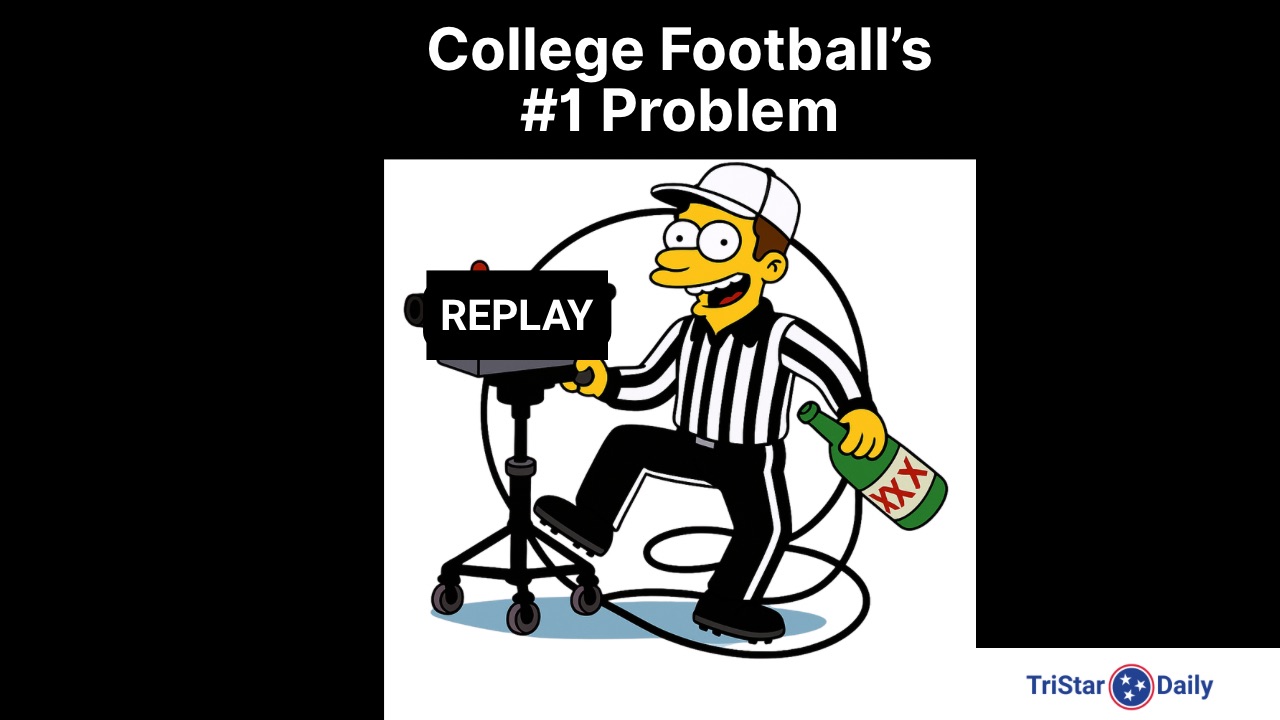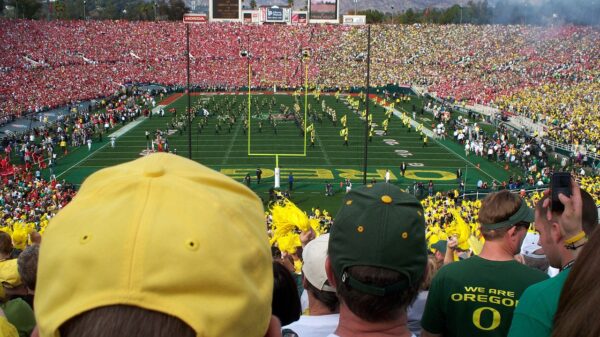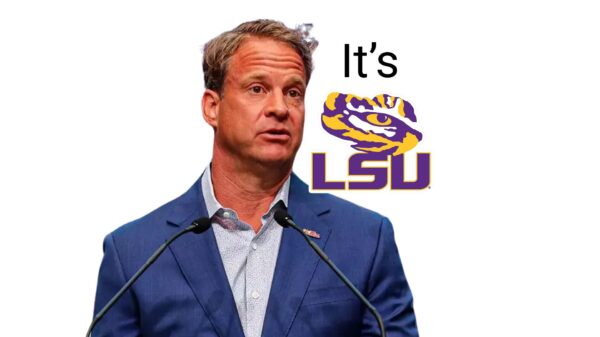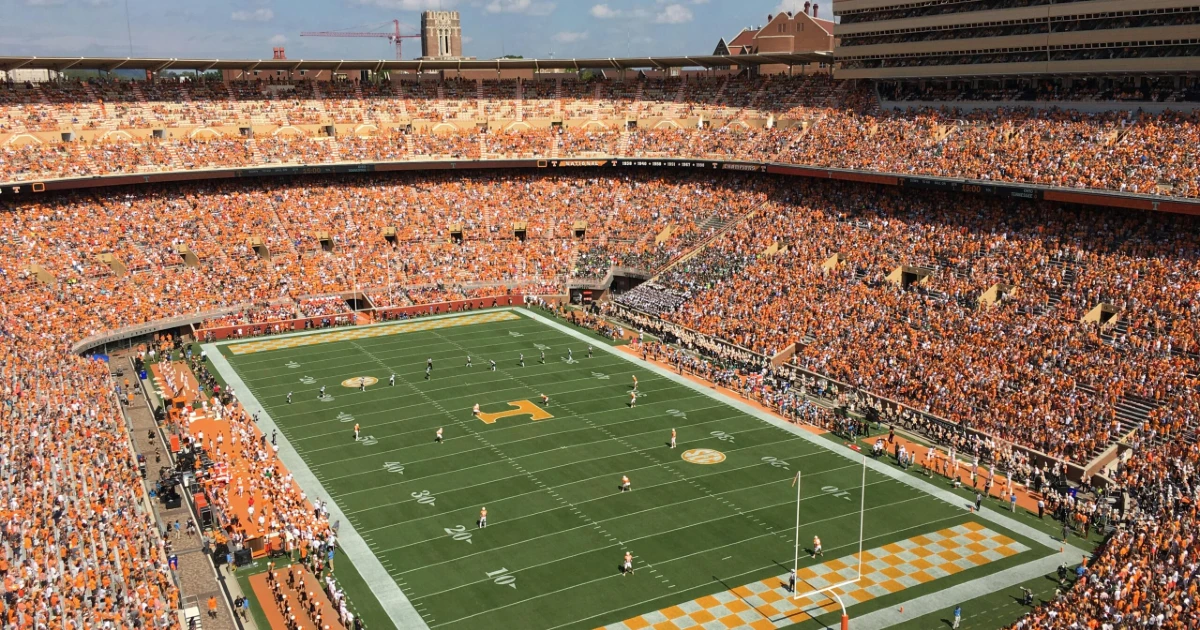If you have ever watched a college football game and thought, “You know, I’d rather watch paint dry on a wall than endure any more of this officiating,” you’re not alone.
In fact, my friend Matt just texted me, “The final two minutes of the first half of the UGA/Auburn game may go down as the worst officiating of all time.” And like any sane person watching that game, Matt said he wanted to throw his remote at the TV.
Fan anger in the 2025 season are on the rise, detailing a litany of bizarre officiating blunders that make you question if these referees are using a rulebook from a different sport—or possibly a different century. Coaches, players, and fans are all feeling the heat, and the collective frustration seems to be reaching a boiling point, threatening to explode like an overly enthusiastic tailgater at halftime.
Let’s take a stroll down the yellow brick road of officiating controversies this season.
First up, we have the Notre Dame vs. NC State game, where a replay review led to a call that could only be described as “mind-boggling.” Officials ruled an incomplete pass a completed catch, prompting Terry McAulay, a former NFL official, to declare it “quite possibly the worst replay ruling” of the season. A bold claim, but in a year where referees seem to be playing a game of “let’s see how many rules we can get wrong,” I have to admit it’s a strong contender.
Then there’s the Wake Forest vs. Georgia Tech game, where a blatant offsides call was ignored. This led to a crucial third down that stopped the clock and allowed Georgia Tech to tie the game—eventually winning in overtime. The ACC officials later admitted their blunder, which is nice, but admitting you made a mistake after the fact is like saying you’re sorry for crashing your car into a tree after the cops arrive.
And who could forget the Auburn vs. Oklahoma game? Here, the SEC acknowledged a missed call allowing an Oklahoma receiver to score a touchdown after executing a “hideout tactic”—which sounds suspiciously like something I’d try to pull off at a family gathering to sneak out of doing the dishes. The SEC promised “appropriate accountability” for the officiating crew, which is code for “we’ll think about it while we sip our mint juleps and ignore the chaos.” Steve Gill makes a valid point, “player talent is so much better than the referees. Particularly in the SEC. The conference needs to step up!”
Ohio State fans were left scratching their heads after a replay decision overturned what appeared to be a clear catch. Was it a conspiracy? A plot? Or just a referee who was temporarily distracted by the snack bar? We may never know, but the Buckeyes ended up with a scoreless drive instead of a touchdown.
And speaking of chaos, Syracuse vs. UConn saw referee Gary Patterson resign out of frustration over the handling of a replay review. Apparently, he felt “compelled” to review a play that shouldn’t have been eligible in the first place. Imagine the look on his face when he realized he’d signed up for a job that involved this level of absurdity.
But what’s the root cause of all this confusion? According to The New York Times, it boils down to a lack of centralized authority. Unlike the NFL, where there’s one body overseeing officiating, college football is like a chaotic family reunion with each conference doing its own thing. This leads to wildly inconsistent standards and accountability—think of it as a buffet, where some referees are serving gourmet meals while others are dishing out cold leftovers.
Moreover, officiating errors are being scrutinized at an unprecedented level thanks to social media. Every missed call is dissected like it’s a play from the Super Bowl, and the outrage spreads faster than a rumor about a coach’s secret playbook.
Some critics argue that the college football rulebook is so convoluted that it’s akin to deciphering ancient hieroglyphics. This vagueness opens the door for hesitation and inconsistent interpretations, which is like letting your cat decide how to run your household.
Despite the uproar, some officiating coordinators insist that performance is better than ever. They claim a high rate of correct calls, but if you ask Terry McAulay, he’ll tell you that officiating on the field is “stagnant at best.” This disconnect between officials and the public only exacerbates the perception that NCAA officiating is spiraling downward.
In the end, college football officiating is in a state of disarray that makes me long for the days when a referee’s biggest controversy was whether or not to toss a coin at the start of the game. Until someone steps up to tackle these issues head-on, we might as well invest in a case of remote controls—and a strong supply of adult beverages.
JC Bowman is a Contributing Editor for TriStar News.














